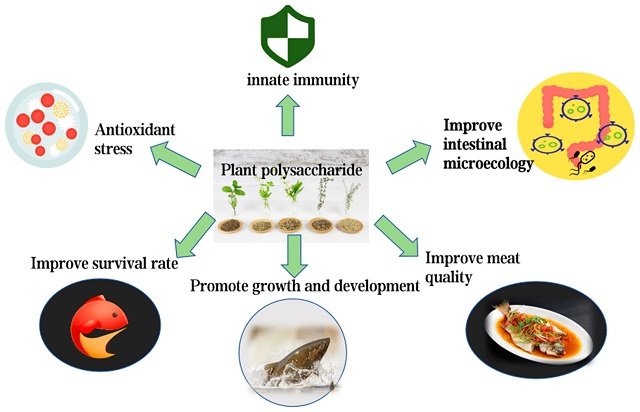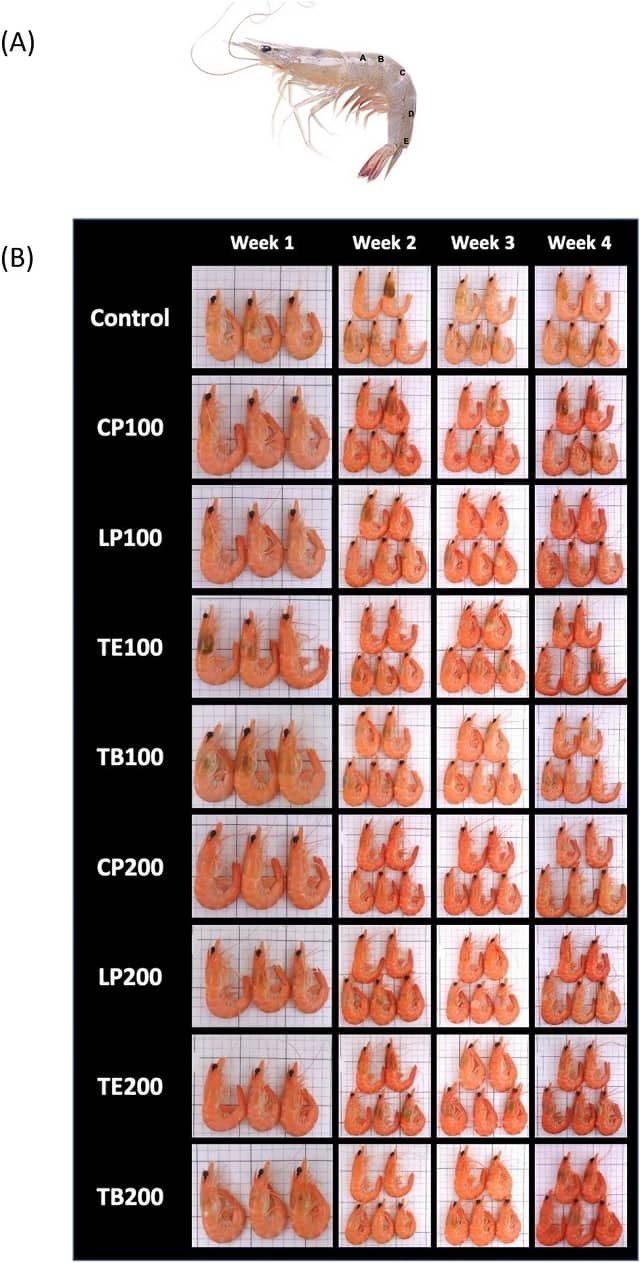
Natural antioxidants are a valuable tool in aquaculture to enhance the health and performance of aquatic animals, ensure product quality, and promote sustainable practices.
A team of researchers from Xichang University published a scientific review on the role of various natural antioxidants (carotenoids, polysaccharides, vitamins, etc.) in promoting better health and resilience in fish and other aquatic animals.
The paper, published in the journal Biology, highlights how these compounds, extracted from natural sources, can serve as a sustainable alternative to synthetic antioxidants, which are increasingly scrutinized by consumers.
What Is Oxidative Stress?
Oxidative stress refers to an imbalance between oxidation and antioxidation within the body, resulting in the excessive production of reactive oxygen species (ROS) and reactive nitrogen species (RNS).
At low concentrations, ROS have physiological functions, such as aiding immune cells in eliminating foreign pathogens and serving as signaling molecules in cellular communication. However, due to their high chemical reactivity, excess ROS can cause oxidative damage to biological macromolecules like DNA, proteins, and lipids. This damage is associated with aging, cancer, and other diseases.
In aquaculture, oxidative stress is particularly detrimental due to its impacts on both the physiological and economic aspects of aquaculture species.
The Impact of Oxidative Stress on Aquaculture
Oxidative stress negatively affects various aspects of aquaculture:
- Reduced growth and productivity: It impairs the physiological metabolism of aquatic animals, leading to slower growth rates and lower yields.
- Weakened immune system: Oxidative stress compromises the immune system, making animals more susceptible to diseases, increasing mortality rates, and necessitating higher antibiotic use.
- Decreased product quality: It can negatively affect the quality of harvested products, impacting factors such as texture, flavor, and nutritional value.
The Role of Natural Antioxidants
Natural antioxidants play a crucial role in mitigating oxidative stress and improving health and productivity in aquaculture. These compounds, derived from plants and other natural sources, act by neutralizing reactive oxygen species (ROS) and protecting cells from the damage they can cause.
According to the study, the main roles and mechanisms of natural antioxidants include:
Stay Always Informed
Join our communities to instantly receive the most important news, reports, and analysis from the aquaculture industry.
- Neutralization of ROS: Natural antioxidants like carotenoids, polysaccharides, vitamins, polyphenols, and flavonoids neutralize ROS by donating electrons, stabilizing free radicals, and interrupting chain reactions that lead to cellular damage.
- Protection of macromolecules: By reducing ROS presence, natural antioxidants protect biological macromolecules such as DNA, proteins, and lipids from oxidative damage, maintaining cellular integrity and preventing stress-related diseases.
- Enhanced immune function: Natural antioxidants help improve the immune system of aquatic animals, reducing susceptibility to diseases.
- Increased stress tolerance: These antioxidants boost the ability of aquatic organisms to withstand environmental stressors, including water quality changes, temperature fluctuations, and contaminants.
- Improved performance and product quality: Including natural antioxidants in aquatic animal diets enhances growth, feed efficiency, and product quality, while preventing lipid peroxidation to maintain nutritional value.
Mechanisms of Action
Natural antioxidants exert their beneficial effects through various mechanisms:
- Scavenging ROS: Directly neutralizing free radicals to prevent cellular damage.
- Modulating cellular signaling pathways: Activating antioxidant defense systems within organisms, such as the Nrf2/ARE pathway, which regulates antioxidant enzyme expression.
- Enhancing immune function: Strengthening the immune system to better combat infections and diseases.
Examples of Natural Antioxidants and Their Benefits
- Carotenoids: Astaxanthin enhances pigmentation, immune function, and reproductive performance in fish and shrimp. It also increases hemocyte counts and superoxide dismutase activity.
- Polysaccharides: Polysaccharides from plants like Astragalus membranaceus have immunomodulatory, hepatoprotective, and antioxidant properties. For example, cranberry polysaccharides neutralize free radicals and promote antioxidant enzyme synthesis.
- Vitamins: Vitamin C boosts the activity of enzymes like SOD, GSH, and CAT, alleviating oxidative stress in fish. Vitamin E improves growth rates, enhances antioxidant capacity, and mitigates oxidative stress.
- Polyphenols: Resveratrol improves body weight, weight gain, and antioxidant enzyme activity in carp, while protecting against neurological damage.
- Flavonoids: These compounds exhibit antioxidant, anti-inflammatory, and enzyme-inhibiting effects, reducing lipid oxidation in fish and feeds.
Benefits of Using Natural Antioxidants in Aquaculture
- Enhanced health and well-being: Reduced oxidative stress leads to healthier animals with greater disease resistance.
- Improved growth performance: Better feed utilization and growth rates translate to higher production efficiency.
- Enhanced product quality: Improved nutritional value, texture, and taste of harvested products.
- Sustainability: Natural antioxidants are considered safer and more environmentally friendly than synthetic alternatives, promoting sustainable aquaculture practices.
Conclusion
Natural antioxidants provide a valuable tool for mitigating oxidative stress and improving the health and productivity of aquatic organisms in aquaculture systems.
By incorporating these compounds into diets, aquaculture producers can enhance animal welfare, boost production efficiency, and deliver higher-quality products to consumers. However, further research is needed to optimize the use of natural antioxidants in aquaculture and unlock their full potential for sustainable and profitable practices.
Reference (open access)
Hu, X., Ma, W., Zhang, D., Tian, Z., Yang, Y., Huang, Y., & Hong, Y. (2025). Application of Natural Antioxidants as Feed Additives in Aquaculture: A Review. Biology, 14(1), 87. https://doi.org/10.3390/biology14010087
Editor at the digital magazine AquaHoy. He holds a degree in Aquaculture Biology from the National University of Santa (UNS) and a Master’s degree in Science and Innovation Management from the Polytechnic University of Valencia, with postgraduate diplomas in Business Innovation and Innovation Management. He possesses extensive experience in the aquaculture and fisheries sector, having led the Fisheries Innovation Unit of the National Program for Innovation in Fisheries and Aquaculture (PNIPA). He has served as a senior consultant in technology watch, an innovation project formulator and advisor, and a lecturer at UNS. He is a member of the Peruvian College of Biologists and was recognized by the World Aquaculture Society (WAS) in 2016 for his contribution to aquaculture.




